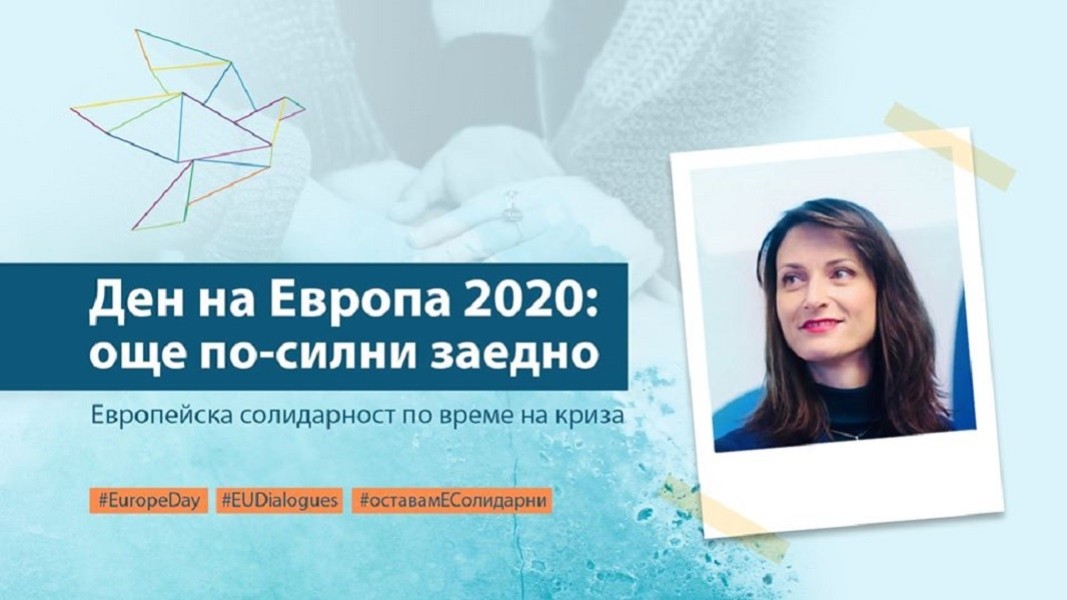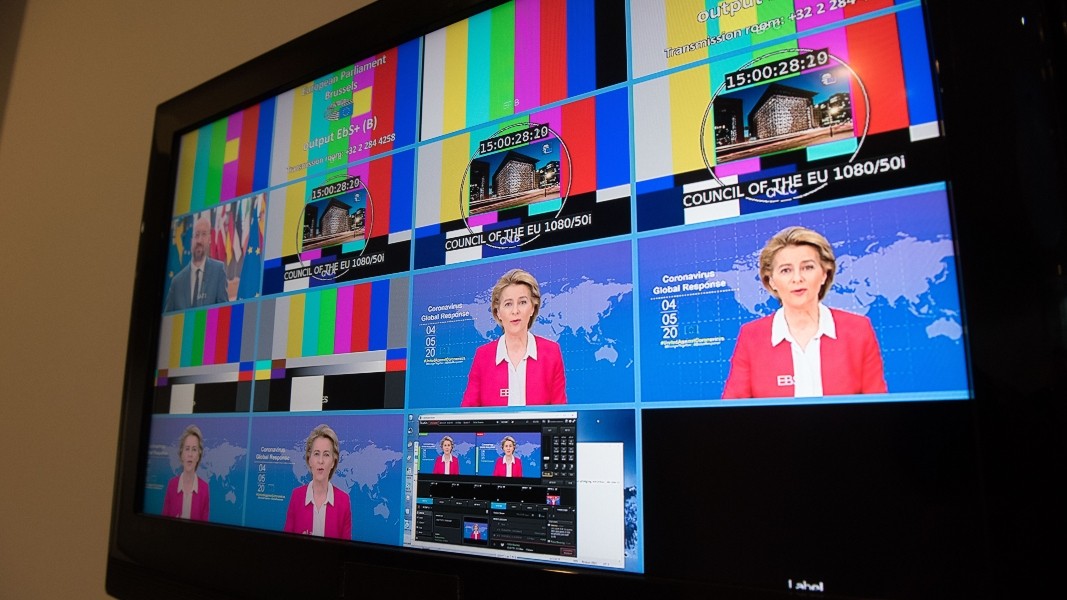This year Europe Day is very different in the conditions of an unprecedented in its scale health and economic crisis, the result of the Covid-19 pandemic. It is also different because of two anniversaries of events of historic significance for the European project – 75 years since the end of World War II and 70 years since the declaration by France’s foreign minister Robert Schuman which laid the foundations of a united Europe.
“Over the past 75 years, we in Europe, together, have proved that peace, cooperation and friendship outside national boundaries form the best foundation for prosperity and growth,” said Nikola Miladinov, press and media officer at the European Commission's Representation in Bulgaria in an interview for Radio Bulgaria.
The Covid-19 crisis put the limelight on some important achievements of the community which seem to have, of late, been taken for granted. Europe Day offers one more opportunity to rediscover peace, freedom, supremacy of law and democracy as core values of society. To work for an economy for all that would enable people to live a risk-free life together and to avail themselves of all opportunities the economy and technologies have to offer.
All of these topics are incorporated in this year’s events marking Europe Day, entirely online:
“In the capital city, and throughout Bulgaria, we launched celebrations with online initiatives,” Nikola Miladinov says. “We joined efforts with colleagues from other information networks in Bulgaria in a solidarity campaign – (#ОставамЕСолидарни). For one week we have posted special content online to bring the public information about a multitude of partner organizations that make available information connected with the EU’s policies. The culmination is at 11 AM on 9 May when the Bulgarian Commissioner Mariya Gabriel will hold a dialogue with people from all over Bulgaria. The topic of the event is: Europe Day 2020: even stronger together.

European solidarity in times of crisis. An initiativedemonstrating, in practice, what the words solidarity and unity mean in times of crisis. At the initiative of the EC and its President Ursula von der Leyen, a fund-raising campaign was launched on a world scale to help the development of a vaccine and effective methods of coronavirus diagnostics and treatment. More than EUR 7 billion was raised on the campaign’s very first day.

Good news came from the online EU-Western Balkans meeting, hosted on 6 May by Croatia, the country which currently holds the EU Council Presidency. As it was made clear, the EU is allocating EUR 3.3 billion worth of financial aid to benefit the citizens of the Western Balkans and for overcoming the humanitarian and health consequences in the region caused by Covid-19.”
“The Western Balkans belong in the EU. There is no question for us about this. And this is why I firmly believe that the European Union has a special responsibility in assisting its partners in the region”, EC President Ursula von der Leyen emphasized.
Photos: ec.europa.eu
The Bulgarian team is returning home with four medals from the Youth International Olympiad on Astronomy and Astrophysics (IOAA) , held in the Romanian city of Piatra Neamț, the Ministry of Education and Science announced. The competition brought..
The Association of Bulgarian Schools in America invites children from the Bulgarian community in North America to participate in a competition dedicated to November 1 - National Awakeners' Day, the organization announced on its..
Robert Joseph Miller, Bulgaria’s Honorary Consul in Nevada, was awarded the prestigious “Golden Laurel Branch” of the Ministry of Foreign Affairs for his exceptional merits in maintaining the diplomatic relations between the US and Bulgaria. The award..
Fertility Europe , the pan-European organization that represents patient associations focused on infertility issues, has announced the start of the 9..
The so-called Seal of Biliteracy was created in 2011 in the US state of California with the idea that in the conditions of a globalized..
Today, in the Radio Bulgaria studio, we welcomed Helmut Matt – a writer, radio journalist and poet, who has maintained a special connection with Bulgaria..

+359 2 9336 661
